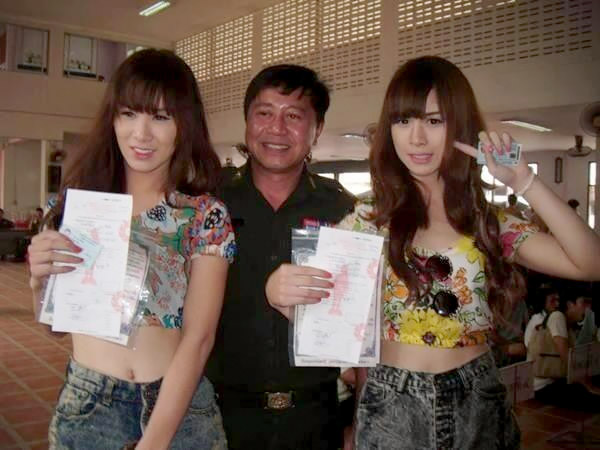“Don’t ask to see their breasts or if they still have a penis.”
These are just some of the behaviors Thai military officers should cut out when it comes to transgender draftees, according to new guidelines released by Thai Transgender Alliance for Human Rights (TGA).
The “When You Meet A Katoey” manual, recently released in both Thai and English languages, aims to guide military officers on how to properly treat transgender individuals on their conscription day, as some officers reportedly still behave towards transgender conscripts in ways that could violate their privacy.
“In some regions, violations of human rights still occur because military officers do not understand katoeys. For example, officers mocked and embarrassed them, asked to see their breasts or if they have had a sex change operation,” Ronnabhumi Sammakkarom, president of TGA, told Coconuts.
The examples of inappropriate behaviors in the guidelines were taken from real events from the past four years. The manual will be sent to the office that organizes the military draft to create better understanding.
TGA also launched a manual and video guidelines for transgender teens on how to prepare for conscription day and immediately report if someone asks them to “distribute drinking water, massage or dance for entertainment.”
“We want our katoeys to be ready and learn to protect their own rights,” Ronnabhumi said.
Thai men are required to participate in conscription when they turn 21 years old. It was only four years ago that the authorities stopped classifying transgender conscripts as having a “mental disorder” and started using the term “gender identity disorder” to exempt them from the conscription.
Editor’s Note: Katoey is an informal loose term in the Thai language to refer to transgender people and cross-dressers. The controversial word is deemed derogatory by some individuals, especially when used by non-transgender people. Coconuts decided to uphold the term as used in the English-language version of the manual and by the interview source.
Want to know more about gender and sex? Pangina, a famous cross-dressing performer, dropped her knowledge on the controversial terms used for transgender people for Coconuts TV.







